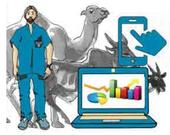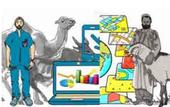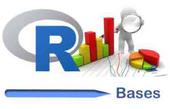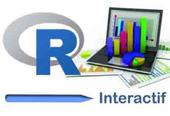Modular courses
Data management
Module "Data, from the field to the online map"
This course on the use of mobile technologies teaches how to: create a smartphone application for data collection and deploy it in the field; integrate mobile data into a GIS; create maps from the collected data; and deploy the created maps on the web without IT development.
To find out more : Download the leaflet
Module "Data management applied to epidemiological surveillance"
The establishment of epidemiological surveillance networks generates the collection of a significant amount of data that must be properly managed to extract health information, which will enable animal health officials to make the most relevant intervention decisions. The implementation of global information systems should make it possible to achieve three main objectives: the regular publication of summaries of the health situation, the calculation of performance indicators and the publication of network management parameters.
To find out more : Download the leaflet
Module "GIS applied to epidemiological surveillance"
The objective of epidemiology and more particularly epidemiological surveillance is to represent the situation of a disease in a given territory in order to be able to take appropriate control measures or to build hypotheses on its origin or risks of spread.
This module is divided into 1 or 2 weeks of training of your choice: week 1 for the first time, week 2 for the second time.
To find out more : Download the leaflet
Module "Information systems applied to epidemiological surveillance"
This module combines two modules that are useful for setting up epidemiological surveillance networks: the modules "Data management applied to epidemiological surveillance" and "GIS applied to epidemiological surveillance". It therefore takes place over three weeks.
To find out more : Download the leaflet
Module "Practical training: Basics of statistical analysis with R"
Data analysis is omnipresent in research work. Understanding the basic concepts of statistics is essential for the effective conduct of a research project. Combined with this, the use of the R software allows simple, fast and reproducible analyses.
To find out more : Download the leaflet
Module "Interactive R: Programming a web application with Shiny"
Communicating research results via the web and interactively has become easy with tools like R Shiny (http://shiny.rstudio.com/), which allows you to quickly create applications for the web and avoids more complex programming in other languages. Thus, the interactive visualization of graphs, tables, maps... can easily be programmed with Shiny and its dedicated libraries. Shiny therefore makes it possible to create fun and attractive interfaces, which are an excellent communication tool.
To find out more : Download the leaflet






